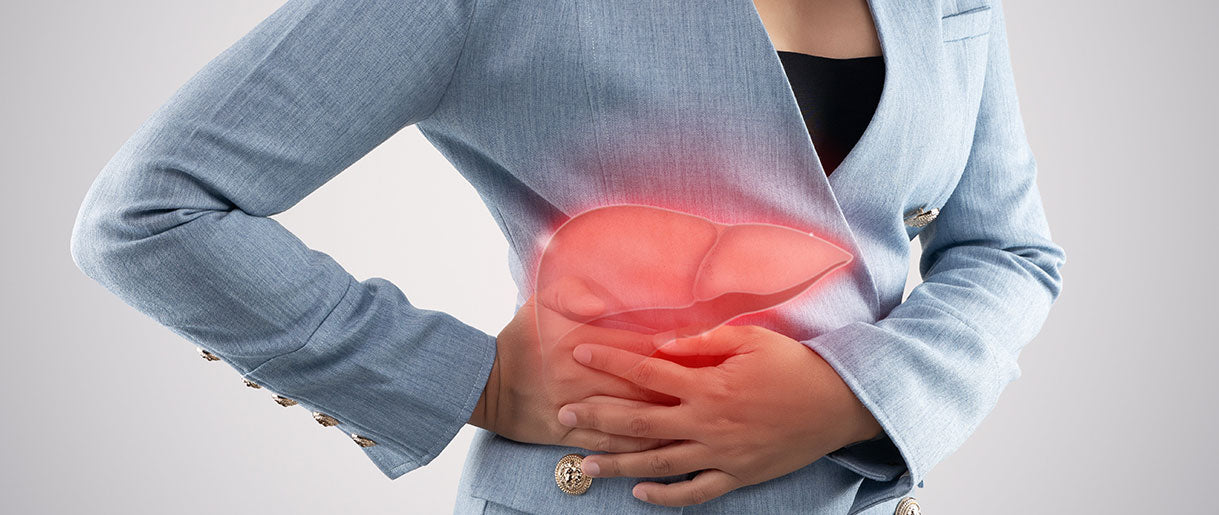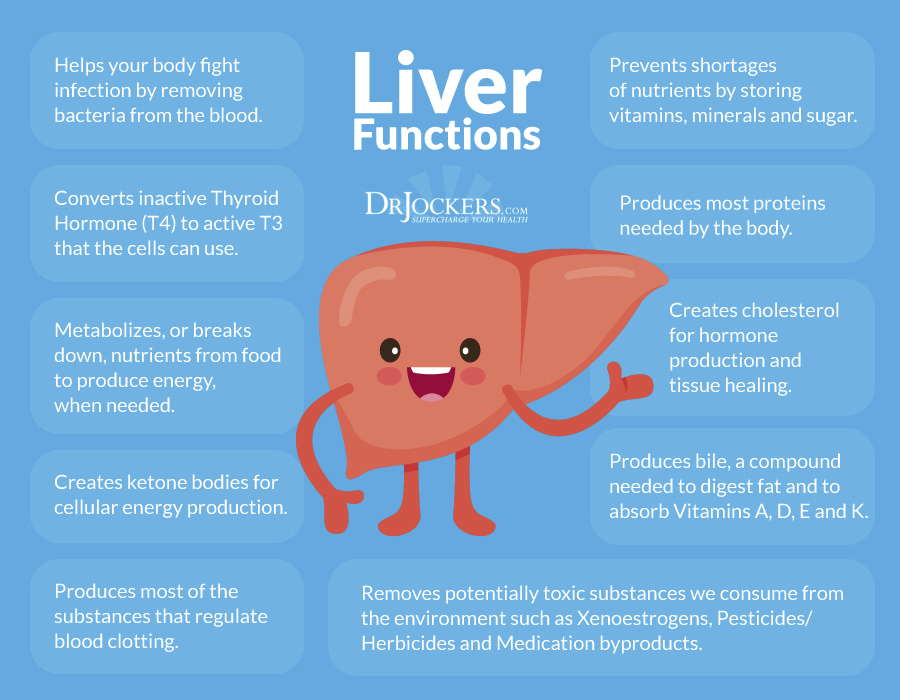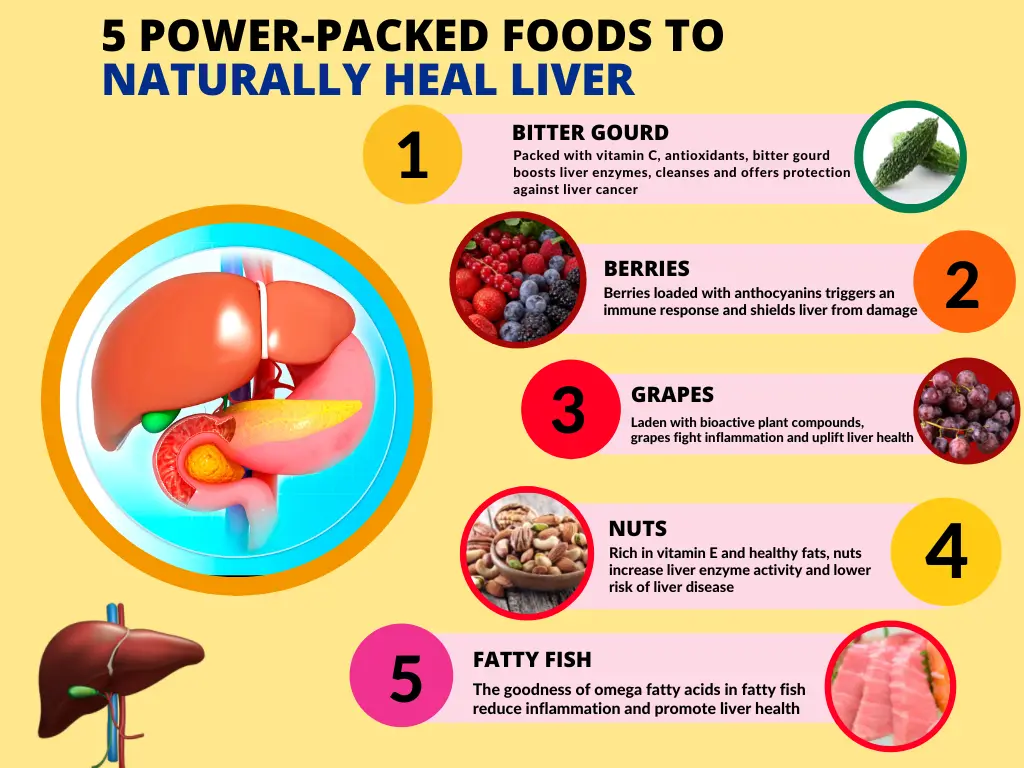
The liver is a vital organ that performs many functions necessary for the health of the whole body. One of their main functions is the regulation of metabolism, including the metabolism of carbohydrates, proteins and lipids. The liver transforms nutrients into energy and also produces essential proteins, such as albumin, which maintains blood volume and transports hormones, vitamins, and other small molecules. In addition, the liver neutralizes and removes toxins, drugs and other harmful substances from the blood, converting them into harmless compounds, which are then removed from the body through the kidneys or intestines.
The liver also plays an important role in the digestive process by producing bile, which is necessary for the digestion and absorption of fats and certain vitamins (A, D, E, K). Bile acids in bile emulsify fats, facilitating their breakdown and absorption in the intestines. In addition, the liver stores vitamins and minerals, including iron and copper, and regulates blood clotting, producing the necessary blood clotting factors. This is especially important for wound healing and bleeding prevention.
The liver's ability to regenerate is another unique property that allows it to regenerate damaged liver tissue. Although certain diseases, such as chronic hepatitis or cirrhosis, can seriously damage liver function, in the initial stages, the liver can restore its function after damage. However, long-term damage and untreated liver disease can lead to serious complications, including liver failure and cancer, so it's important to maintain liver health through a balanced diet, regular physical activity, and avoiding toxic substances such as alcohol and certain drugs.
Thus, the liver is the central organ responsible for metabolic efficiency, detoxification, digestion, and blood clotting. Their activity is necessary for the overall health and well-being of the body, so it is important to take measures to preserve and strengthen the health of the liver.
Liver diseases, their causes and symptoms
Liver disease is a widespread health disorder that can have a variety of causes and symptoms, depending on the type and severity of the disease. These diseases can severely affect liver function and overall health. Here are some of the more common liver conditions:
- Viral hepatitis is an infectious disease, usually caused by hepatitis A, B, C, D and E viruses. Hepatitis A and E are usually spread through contaminated food or water, while hepatitis B, C and D are spread through blood and other body fluids. Symptoms may include jaundice (yellowing of the skin and eyes), fatigue, pain on the right side of the abdomen, dark urine, light-colored stools, and fever.
- Alcoholic liver disease (ALD) is associated with long-term and heavy alcohol consumption. Alcohol can cause fatty deposits in the liver (alcoholic steatohepatitis), inflammation, and eventually cirrhosis. Symptoms may be subtle at first, but later include fatigue, weight loss, and abdominal pain.
- Non-alcoholic fatty liver disease (NAHL) – includes non-alcoholic steatohepatitis (NASH) and non-hepatitis fatty liver disease. It is usually associated with obesity, type 2 diabetes, high cholesterol and triglyceride levels. In most cases, NARL does not cause symptoms, but it can progress to cirrhosis.
- Liver cirrhosis is long-term liver damage in which healthy liver tissue is replaced by scar tissue, impairing liver function. Cirrhosis has many causes, including long-term alcohol use, hepatitis B and C, and NARL. Symptoms include fatigue, weight loss, pain or discomfort in the abdomen, yellowing of the skin and eyes, bleeding and blood vessel "stars" on the skin.
- Liver cancer - usually occurs when there is already cirrhosis or long-term hepatitis. Symptoms are similar to those of other liver diseases, including fatigue, weight loss, and bloating.
Prevention and treatment of liver disease requires lifestyle changes, including a healthy diet, regular physical activity, and, if necessary, limiting alcohol consumption. Treatment for each liver disease varies depending on the cause, but may include medication, surgery, and, in severe cases, a liver transplant. Early diagnosis and treatment are important factors that can improve treatment outcomes and reduce the risk of complications.

How to maintain liver health?
Maintaining the health of the liver is very important, as this organ plays an essential role in the body's metabolism, elimination of toxins and maintenance of many important functions. There are several key guidelines to keep in mind to maintain liver health, including dietary advice and limiting alcohol consumption.
Restriction of alcohol consumption
- Limiting alcohol consumption is one of the most important steps you can take to protect your liver from damage. Long-term and heavy alcohol consumption is one of the main causes of liver disease, including alcoholic liver disease and cirrhosis. Health care professionals recommend that you consume alcohol in moderation or avoid it altogether.
Nutritional advice
- Balanced diet: Include plenty of fruits, vegetables, whole grains, and lean protein sources like fish, poultry, and legumes in your diet. This helps ensure that your body gets all the nutrients it needs and maintains an optimal metabolism.
- Low in fat: Avoid trans fat and high levels of saturated fat, which are common in fast food and processed foods. Instead, choose healthy fats, such as those found in fish, nuts and olive oil.
- Avoiding harmful substances: Reduce your intake of processed foods and added sugars. Also, avoid foods that contain a lot of chemical additives and preservatives.
- Hydration: Drink enough water daily. Water helps remove toxins from the body and maintain normal metabolism.
Physical activity
- Regular physical activity: Physical activity helps maintain a healthy body weight, reduces liver fat, and improves insulin sensitivity. It is recommended that you spend at least 30 minutes of moderate-intensity physical activity every day, such as brisk walking, swimming or cycling.
Periodic health check-up
- Regular health checks: Periodic health checks, including liver function tests, are important to catch any problems early. This is especially important for people whose lifestyle or genetic inheritance may increase their risk of liver disease.
Avoiding toxins
- Avoiding chemicals: Minimize exposure to toxic substances and chemicals, such as household cleaners and paints, as they can enter the body and stress the liver.
Medication use
- Medication precautions: Some prescription and over-the-counter medications, as well as dietary supplements, can cause liver damage, especially if taken in high doses or over a long period of time. It is important to take medicines only according to the doctor's instructions and avoid their arbitrary combination.
Maintaining a healthy lifestyle and following these recommendations can significantly reduce the risk of liver disease and maintain good liver function. Liver health is integral to overall well-being and a long, healthy life.

Information sources
- "The Liver: Biology and Pathobiology"
- Harrison's Principles of Internal Medicine
- "Schiff's Diseases of the Liver"
- "Liver Disease in Clinical Practice"
# kepenys # kepenų sveikata
